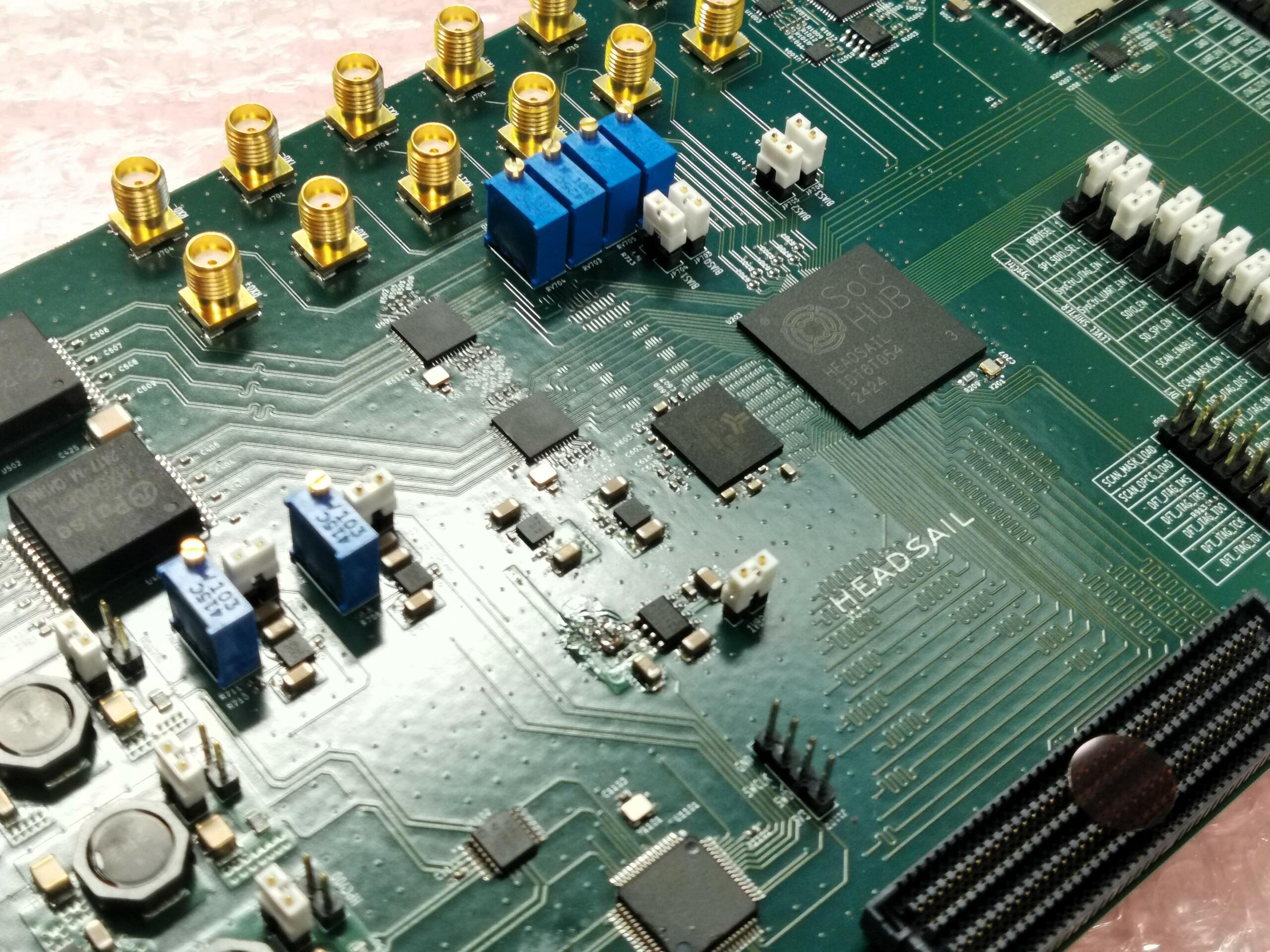The third System-on-Chip named Headsail, developed by the SoC Hub consortium consisting of Tampere University and seven companies, is currently being tested at Tampere University.
The SoC was manufactured at TSMC and it is the most complex one created by SoC Hub to date. It contains 330 million transistors and complex IPs, such as the 4-core 64-bit RISC-V sub-system, Deep-Learning accelerator and much more, including company-specific IP.
“Headsail represents an important milestone for SoC Hub, showcasing our powerful SoC development capabilities, where complex SoCs are built by adding content to previous designs and reusing blocks that are the most suitable for the new chip,” says Timo Hämäläinen, Professor of Computer Engineering at Tampere University.
Designing and preparing a System-on-Chip all the way to a physical chip is a lengthy process. The design of Headsail began at the end of 2022, concurrently with the completion of the project’s second chip. The design phase was completed in August 2023 and the chip was sent for tape-out. About three months later, the manufactured unpackaged chip dies arrived at Tampere University and were then sent for packaging. A custom 624 pin BGA package was designed for Headsail, making the packaging phase particularly significant. The packaging process took approximately six months, and the consortium received the packaged chips in July 2024. After this, the chips were mounted on development boards before the testing could commence.
“During the initial phase of testing, it was discovered that the chip is electrically functional. All subsystems can be switched on and are connectable, and the application RISC-V processor subsystem successfully executed the first ‘Hello World’ program on each of its cores,” describes Arto Oinonen who leads the testing process at Tampere University. In addition to functioning processor cores, this requires that the interconnect between the subsystems, programming and data interfaces, and the software development environment are all operational.
The project team will now continue more thorough testing and building demos. There are multiple planned use cases for Headsail, including AI applications, audio processing and real time critical communication applications.
Headsail was designed as part of a Business Finland -funded co innovation project that started in 2020. The project partners include Tampere University, Nokia, CoreHW, VLSI Solution, Wapice, Hiab, Procemex and TTTEch Flexibilis.

